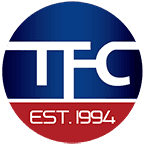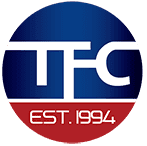In the United States, around 78% of Americans have at least 1 credit card. If you’re in the minority but are thinking of applying for a credit card soon, then you might feel a bit lost.
Getting into the world of credit cards isn’t as easy as just applying, receiving, and using them. There’s a whole world of terms out there, including confusing acronyms!
But don’t worry about getting stuck on credit card acronyms. We’re here to show you all the jargon so you understand what you’re reading! That way, you don’t get trapped in a bad situation.

AA Letter
An “AA letter” is an “adverse action letter.” Unfortunately, you’ll receive one if you’ve been denied a line of credit, such as for a credit card.
This is because by law (the FCRA; we define this acronym later), lenders must let you know exactly why you were denied when you apply for a credit card or loan.
ACDV
“ACDV” stands for “automated credit dispute verification.” An ACDV form is generated by credit reporting companies if you feel like something is wrong on your credit report. The form is then sent to the appropriate lenders and collection agencies if necessary.
APR
One of the most common terms you’ll see is “APR.” This stands for “annual percentage rate,” which is how much you’ll be paying in interest should you have a balance.
Generally, the better your credit score, the lower APRs you’ll get. This means you can save money when repaying your credit card debt.
AMOP
This acronym stands for “alternative methods of payment.” Basically, it refers to anything that’s not cash. So that means not only does your credit card fall under AMOP, but so does your debit card.
CDIA
“CDIA” stands for the “Consumer Data Industry Association.” You’ll often see this acronym since they are an international association. They represent many consumer reporting agencies.
CRA
You’ll see this term quite a lot. It means “credit reporting agency” or “credit rating agency.” This is in reference to the agencies that give you your credit scores, such as Equifax, Experian, and TransUnion.
CRO
“CRO” is the acronym for “credit repair organization.” These are companies that help consumers rebuild their credit if they need assistance in raising it, especially in a short period of time.
These services are not free. Instead, CROs will charge you a certain fee for their help.
CROA
Not to be confused with “CRO,” this is the acronym for the “Credit Repair Organizations Act.” There are credit repair companies out there that offer you a second chance at a good credit score (which are the CROs). But often, they resort to unscrupulous actions to do so.
The CROA ensures that these companies have to follow certain regulations when it comes to offering services to consumers.
CVV
“CVV” stands for “card verification value.” This is the 3-digit number you’ll find on the back of your credit card.
Usually, when you input your credit card number anywhere (i.e. online), you’ll be asked to input the CVV too. This is to ensure 2 things: that you are actually the cardholder and that the card is authentic.
EFTA
The “EFTA” is the “Electronics Funds Transfer Act.” This was passed in 1978 in response to electronic transfer methods becoming more popular.
With the EFTA, consumers are protected in transactions that happen through electronic methods like ATMs, debit cards, and internet bank transfers.
FCBA
This is the “Fair Credit Billing Act.” It was first passed in 1974 and an amendment to the Truth in Lending Act.
The main purpose of this act is to protect consumers like you and keep creditors from taking advantage of you. It makes it harder for them to have unfair billing practices.
FDCPA
This is another act: the “Fair Debt Collection Practices Act.” This one was passed in 1977 and is also an act that protects consumers.
The FDCPA specifically deals with third-party debt collectors. It essentially prohibits them from bullying you into paying them.
FICO
“FICO” is the “Fair Isaac Corporation.” You’ll often be asked for your FICO score; this is synonymous with your credit score. This is because you can get your FICO scores through CRAs like the 3 major ones we listed above.
PACER
“PACER” stands for “Public Access to Court Electronic Records.” This is a public service and CRAs use it to pull information about you, such as any filings for bankruptcy. They then place the information they find on your credit reports.
RMCR
The “RMCR” is a “residential merged credit report,” which is also known as the “residential mortgage credit report.” This is where you get one report instead of separate ones from the 3 major CRAs from above.
An RMCR makes it a lot easier to look at your credit score and make sense of it.
VSS
This is the acronym for the company Vantage Score Solutions. They’re a well-known name in the finance industry because they’re the ones who are in charge of the VantageScore credit system. Consider it as an alternative to your FICO score.
Understand These Credit Card Acronyms for a Better Time
Now that you understand all these credit card acronyms, you’re sure to have a better time whenever you apply for a credit card or loan. Considering many (if not all) loans use the same terms, everything you’ve learned here is sure to transfer to any major financial decision you make in the future.
So commit these acronyms to memory and we are sure it will pay off. The next time you have to go over loan terms, it will be a cinch!
Need some extra financial help? Then why not apply for a title loan? TFC Title Loans will offer you some of the best rates and terms around!
This article was brought to you by TFC Title Loans, we try to bring to you the most informative information. If you are interested in getting a title loan in my area, we are able to help you with our large referral network.
We will help you to get the most money by using the equity that you have in your vehicle, the application is fast and we can provide you with same-day funding.
All of our referral partners are in compliance with the CFPB. We will help you to get the money that you need but from a trusted and reliable title lender.


